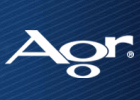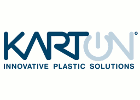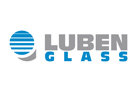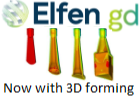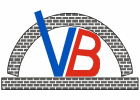Speciality glass manufacturer Schott has launched a hydrogen pilot project in its aim to manufacture climate neutral glass.
The company launched the project at its headquarters in Mainz to test large-scale use of hydrogen in glass production.
The largest share of Schott's energy requirements and carbon emissions occur during the melting process. Glass melting requires temperatures of up to 1,700° Celsius to produce speciality glass for vaccine vials, smartphone cover glass, or microchips.
Until now, Schott’s melting tanks have been heated with natural gas and in some cases with electricity.
The company is working to change this as part of its initiative to become climate neutral by 2030. In order to develop climate-friendly glass melting processes, it has started several research projects.
They are focused on electrification based on green electricity and on hydrogen combustion.
In both approaches, electricity from renewable energies plays a decisive role. Now, the company plans to test hydrogen-natural gas-blends in large-scale melting trials at a furnace at its Mainz headquarters for the first time.
In this trial, its the R&D experts will gradually replace natural gas with hydrogen.
Over the course of a month, the ratio of hydrogen in the natural gas/hydrogen mixture will be gradually increased to up to 35% by volume in three test phases lasting around 10 days each.
The company will use these experiments to learn more about the effects of hydrogen in glass melting processes. The long-term goal is to reduce carbon emissions in the long term.
The research project’s total cost amounts to more than €714,000. Schott and its partners received grant funding of around €338,000 as part of the European Union’s European Regional Development Fund (ERDF) from the Rhineland-Palatinate Ministry for Climate Protection, Environment, Energy and Mobility.
"Becoming climate neutral means that we have to come up with groundbreaking technological innovations," said Dr. Jens Schulte, member of the Board of Management and responsible for the Zero Carbon programme at Schott.
“Transforming our glass melting technology is a highly complex process with many technical hurdles. That’s why we would like to thank our partners for awarding us these grants to support these innovative projects.”







